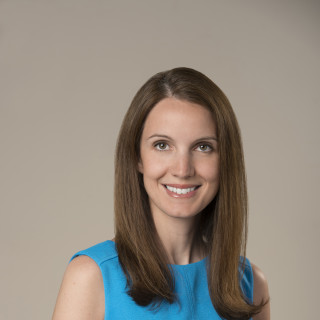 The MD behind your name was hard-earned and likely came with the baggage of a huge student loan debt. The day you start seeing patients and generating income should be the day you start planning and preparing for your eventual career exit, however far away that may be.
The MD behind your name was hard-earned and likely came with the baggage of a huge student loan debt. The day you start seeing patients and generating income should be the day you start planning and preparing for your eventual career exit, however far away that may be.
Hopefully, you read further than the title to realize I am talking about financial preparation for retirement, not quitting medicine right after you graduate. That said, more and more physicians are retiring early or going into part-time practice. They are able to do this with careful preparation, which provides the flexibility non-traditional professional lives require and the means for financial health without the income generated by seeing patients. The new generation of physicians is already discarding old ideas, eager to make prudent decisions — not surprisingly, given the enormity of the debt most are grappling with before they even get started. It’s time we got rid of the reputation that we lack financial sense and over-spend to maintain a “doctor’s lifestyle.”
To start, the first thing young doctors can do is take advantage of the 401K or 403B plans offered in residency, especially if the contribution will be matched. Even though it feels like you make barely enough to survive on during residency, starting this habit from the beginning will set you up for a lifetime of smart investing. Everyone has likely heard the phrase, “live like a resident for as long as you can.” It all boils down to the idea that you should live within your means and not spend extravagantly because of societal pressures to present yourself in a certain way. By keeping your standard of living low, even if you can afford more once you are finished with residency, you will give yourself a much better chance for your life and career to flourish down the road.
Second, paying down medical school debt is a must. Paying more than just the minimum amount each month is the only way to get to a positive net worth in a reasonable amount of time. Stretching out the payments may make you feel more comfortable in the short term but will be a severe handicap in the long term. If at all possible, pay off loans quickly.
Third and finally, approach your first job post-residency with a forward-thinking approach. You need to know what happens when you leave. Is there a pension plan? If not, how will you be able to retire? You need to have a plan beginning from day one on a new job. Identify a plan that works for you, but even if you decide to splurge a little with that first paycheck, please don’t forget to also save and invest! A habit of automatic investment is one of the best ways to force yourself to plan for your future. You won’t miss a recurring “expense” that is immediately withdrawn from your bank account each month. You will learn to have no problem living on less, and you won’t have to do the work of transferring money out of every paycheck to an investment account. Taking the time to set this up at the start of a new job will be one of the smartest things you do. Not only will your money be compounding over the years, but you will also be gaining the benefits of “dollar-cost averaging” by investing over time instead of doing a lump sum investment. Down the road, when you get a raise, a bonus, or unexpected windfall, don’t forget to bump up the automatic investment amount.
If you’re worried about investing and don’t know how to get started, don’t despair. The biggest hurdle for physicians is often lack of time and knowledge, but investing doesn’t require anything fancy! Start with a mutual fund (Vanguard has some good options). Don’t be intimidated by money, investing, or taking control of your retirement. It is easier than you think and does not need to take a significant amount of time. In fact, it’s better if you don’t focus on the investment much at all; let it grow for years untouched (except for your continued contributions). Automatic investing will make the time you spend managing your investments minimal and, by starting early, you will find yourself in a place you didn’t think was possible.
The future is never set in stone. You may find that your original career isn’t going the way you wanted. You now have the flexibility to change it. Perhaps you want to change from employed to private practice. Perhaps you want to go part time. Have you ever considered a sabbatical? Is it your dream to volunteer in another country? All of this is possible to do in a medical career. Don’t ever let anyone tell you it’s not. Planning for retirement early doesn’t mean that you must stop practicing early. However, it does mean that you need to proactively determine the way you want your career to go, instead of letting someone else dictate your trajectory for you.
Dr. Valerie A. Jones is a board-certified obstetrician-gynecologist who is passionate about women's health care, personal finance for physicians, and motherhood in medicine. Her writings on these topics can be found on her website. Dr. Jones is a 2019–2020 Doximity Fellow.
Illustration by Jennifer Bogartz





